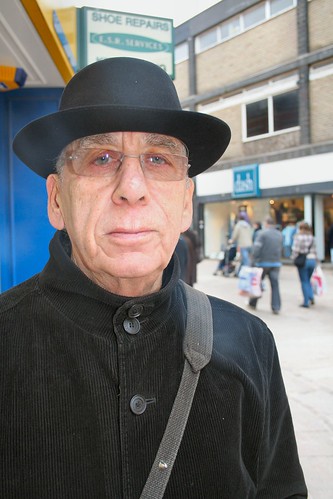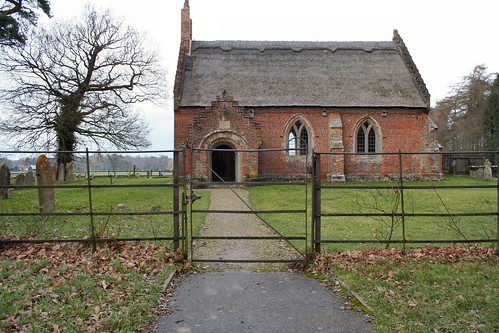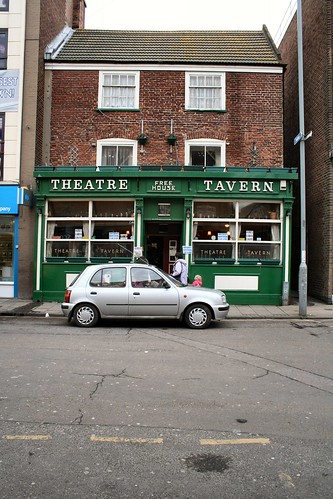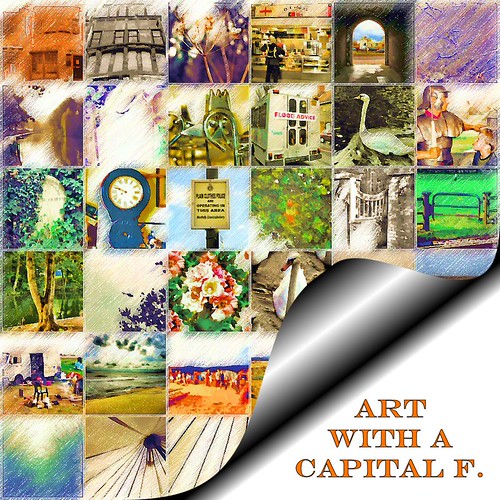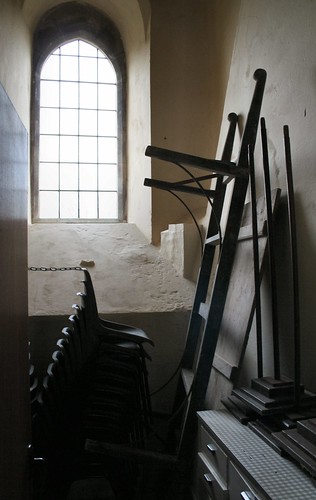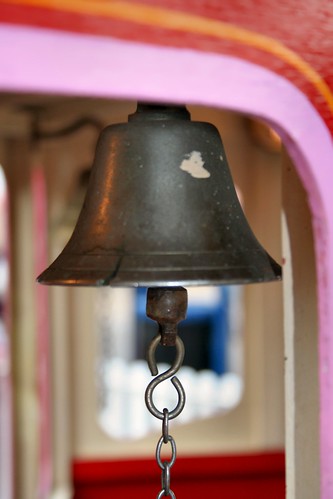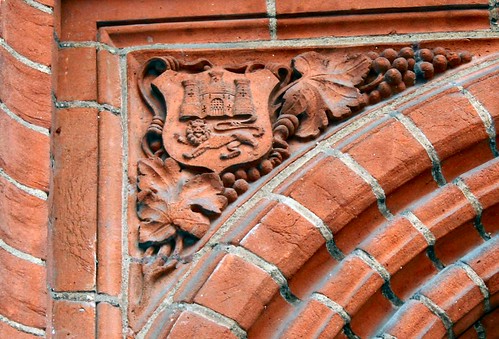A chance meeting on Little London Street.
Since the 1950s when he first performed at Antoinette ‘Black Anna’ Hannent's The Jolly Butchers public house, Albert Cooper as a musician, blues-shouter, promotor, one time part owner of The Jacquard Club and general good egg has been one of the most influential figures on the Norwich and Norfolk music scene. Even now he has one of the most remarkable voices never to have become famous and his infrequent concerts and guest appearences are sought out by the cognescenti from all over the country.
If you read this I urge you to seek him out and listen to him.
Sunday, February 26, 2006
Good Afternoon Mr Cooper
Saturday, February 18, 2006
St Peters Hoveton
St Peters is a delightful church. Bounded on one side by a ha-ha there is a terrific view of Hoveton Hall from the graveyard. And a seat if you want to have a picnic
Built of red brick with a Norfolk thatch roof it is of the low church rather rather than the 'smells and bells' wing of the C of E.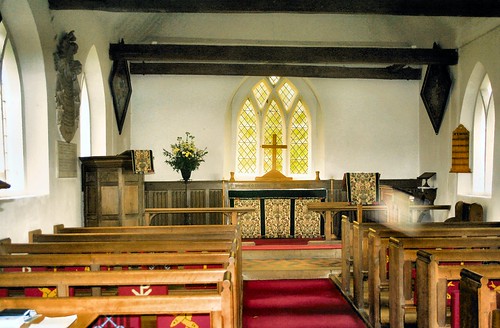
As this is England the church was, of course, locked. I was able to take a photograph through the west end window of the interior which was not very satisfactory. I have used PaintShopPro and the Virtual Painter program to try and give a feel of what the interior is/must be like. I have included the original with the set of photographs of St Peters Hoveton in case anyone wants to try to do better (I would be very grateful if they do)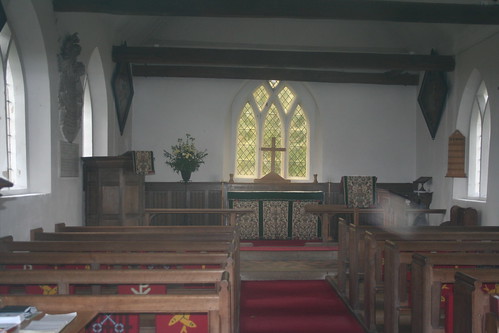
I am a sentimentalist at heart and I rather like the effect (entirely accidental) of the light coming through the East Window and sillouetting the cross.
Note the simple altar (or communion table), the plain cross, the lack of a gate on the communion rail, the simple pews and save for a few monuments the lack of any decoration. I do have to mention that when I was a boy growing up in a similar rural Norfolk parish the cloth might have been considered quite popish. I remember the uproar when a new rector put silver candlesticks on the altar. What a long way we have come.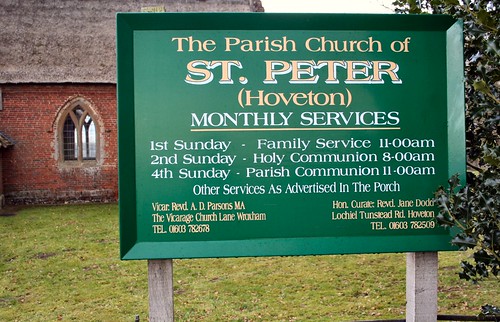
Thursday, February 16, 2006
Great Yarmouth
Why does everyone hate Great Yarmouth?
Great Yarmouth is stuffed with some of the most wonderful buildings yet still it is an unlovely place and I am unsure why this should be so. Talk to anyone who lives in Norfolk, mention Yarmouth and they all give the same grimace. A friend suggested that it is not the buildings but the people that make it ugly but I think this is rubbish; that has, for example, never stopped the English loving Paris and everyone -including the rest of France- hates the Parisians. 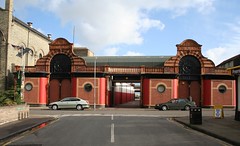
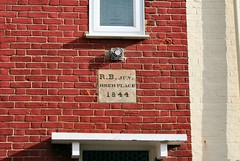
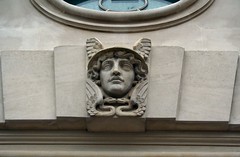
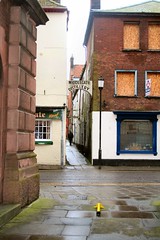
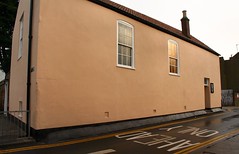
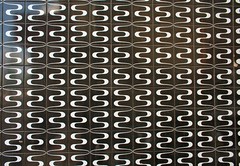
Wednesday, February 15, 2006
Friday, February 10, 2006
ART WITH A CAPITAL F.
The title picture to a set subtitled (Messing around with Virtual Painter)
This set features photographs that have been edited and altered using Paint Shop Pro and the Virtual Painter plugin. It may not be art but it certainly wastes a lot of time.
This picture was created using Mosaic Maker and then made more exciting with Paint Shop Pro and Virtual Painter. My intention was to make the industrially produced mosaic more relevant to the subject of the set.
Thursday, February 09, 2006
Bier And Chairs
All Saints Church at Rackheath is one of the most peaceful and attractive of Norfolk Churches. (You cannot say it is in Rackheath as History, has left it two miles from the village.)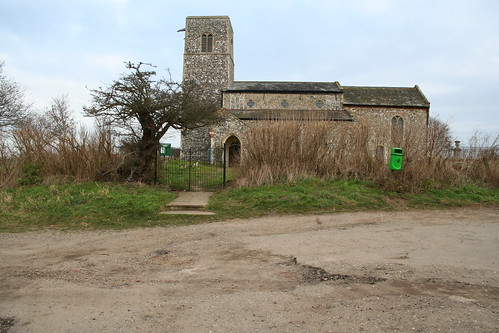
Although only a few miles from the centre of the City of Norwich it manages to feel like one of the County's most isolated. More photos here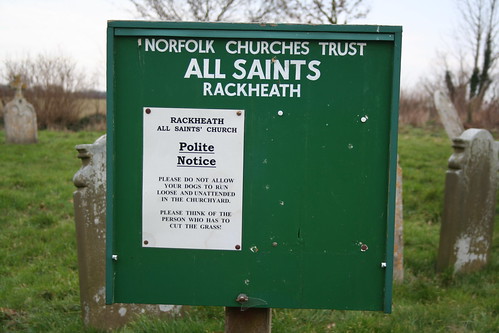
Saturday, February 04, 2006
Thursday, February 02, 2006
Cutting Brick
The Victorian and Edwardian architects in the interest of decoration would mix and match design elements to produce what can only be described as surreal combinations; This example from a window to the Old Royal Hotel on the corner of Prince Of Wales Road and Bank Plain, Norwich shows the coat of arms of that City against a background of plump Mediterranean grapes.
Oh well I suppose they could have been grown in a hothouse on the Mile Cross and the more credible combination of the City Badge on top of some turnips would not, somehow, have the same appeal.
As a matter of interest does anyone sculpt brick anymore?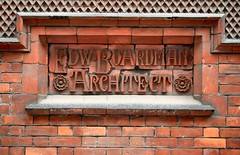
The above sign begs a lot of questions not least of which is how was it done? Was the lettering cut into a block of brick tile or were the letters moulded and then fired? Could you go into an Edwardian building supply shop (an old time equivalent of Jewsons) and buy letters 'off the peg'? This is something that needs further investigation.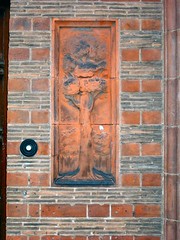
This last one is interesting because the tiles appear to have been originally painted.
